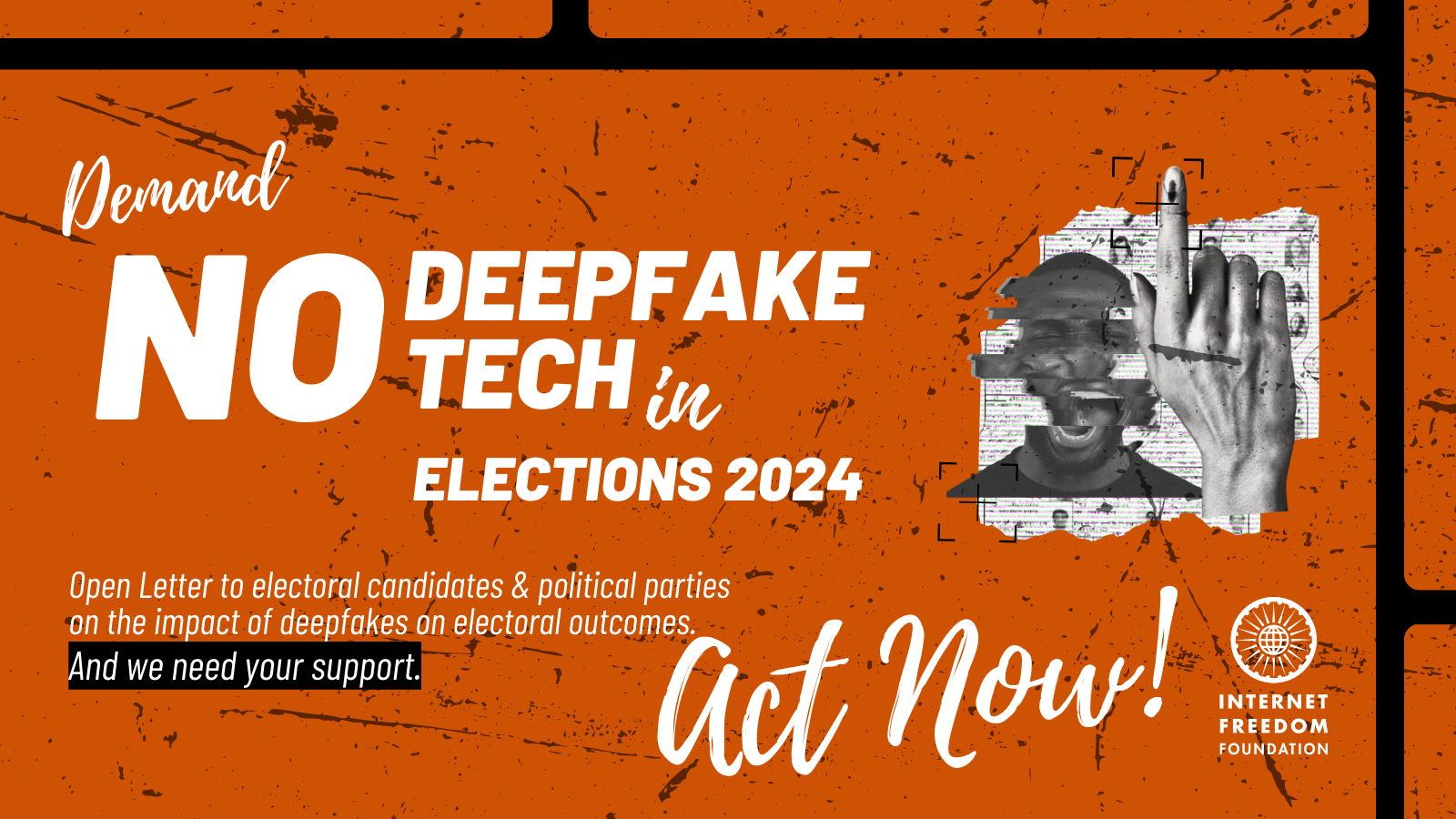
tl;dr
The rapid advancement of generative AI technology is reshaping the political landscape, presenting both challenges and opportunities for the 2024 Indian election. Given that instances of creation, use, and dissemination of AI-generated synthetic media have surfaced in the recent past, both domestically and internationally, we request all Indian political candidates and affiliated organisations to publicly commit not to use deepfakes technology to create deceptive or misleading synthetic content in the run-up to and during the 2024 general elections.
Why should you care?
Elections are the cornerstone of any democracy, and the legitimate and responsible use of technology can empower citizens in a way that harnesses the true potential of elections. The ethical use of technology has certainly served to increase electoral legitimacy, curb malpractices, and broaden outreach. However, the negative affordances of technology have the potential to create disruptions in the functioning of a fair and ethical election.
Advancements in technology have led to the emergence of sophisticated and complex systems that can deceptively alter the flow of information in digital and physical spaces. One such evolving and emerging technology is deepfakes – digital content that has been manipulated or synthesised using deep learning models to appear authentic – which may be circulated through various forms of media. Given the low rates of media and information literacy as well as the divisive politics in the country, the severity of threats posed by synthetic media must be acknowledged at the earliest.
Our demands
Instances of creation, use, and dissemination of such AI-generated synthetic media have been increasing in the country, with use cases ranging from language translation to financial fraud (see here, here, and here). Although the positive affordances of such a technology are several, the consequences of its misuse, especially in the election context, may be grave. While much of the focus of the incumbent government is on reiterating the obligations of platforms and identifying regulatory avenues to curb the spread of such content on social media platforms, there is also a pressing need to interrogate the use of deepfakes technology by political actors with the intent to impact electoral outcomes.
Although more broad-based research is required to establish that the circulation of synthetic media directly affects voting patterns, the use of deepfakes for disseminating misleading or deceptive narratives about political candidates and affiliated institutions may affect voter perspectives, sentiments, as well as their behaviour. Targeted misuse of the technology against candidates, journalists, and other actors who belong to gender minorities, may further deepen inequities in the election. Such methods, if widely employed, even have the potential to impact electoral outcomes, thus painting a concerning picture for electoral integrity.
Over the years, political parties have been able to establish sophisticated channels for information dissemination and campaigning, which can be used for the widespread circulation of manipulated media among voters. The ability to derail or discredit another candidate’s campaign or to even make false and fictitious claims to bolster one’s campaign existed in previous elections. However, the ability to do that in the upcoming elections with such generative technology, that is also readily and freely available to everyone, may have drastic implications on a large scale – such as voters being deliberately misinformed, affecting their ability to exercise their democratic right to cast a free and informed vote.
Given that instances of such misuse have surfaced in the recent past, both domestically and internationally, we request all political candidates and affiliated organisations to publicly commit not to use deepfakes technology to create deceptive or misleading synthetic content in the run-up to and during the 2024 general elections (see here and here). We urge political representatives to oppose the use of such disinformation campaigns before elections and request them to be aware and take action against the physical circulation of synthetic content.
What can you do?
We shared the open letter with Parliamentarians, union level and regional political parties, and their affiliated organisations to ask for their endorsement of this letter. This letter is also open for signatures from the public till March 01, 2024. If you are concerned with the misuse of synthetic media and its impact on our ability to cast an informed and free vote, please consider signing the letter. Each signature strengthens our demands as well as our attempt to achieve free and fair elections.
We would like to thank MediaNama, Point of View, Digital Empowerment Foundation, Access Now, One Future Collective, Mazdoor Kisan Shakti Sangathan, Young Leaders for Active Citizenship, Maadhyam, Article 21 Trust, India Civil Watch International for their inputs on the letter, and for publicly endorsing it. We also extend our gratitude to the 14 organisations and 217 individuals who signed the letter so far.
Important documents
- Open Letter to Electoral Candidates & Parliamentary Representatives on the Impact of Deepfakes on Electoral Outcomes dated 20.02.2024 (link)


